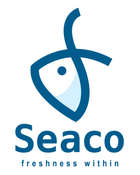Lab Grown Seafood Singapore: The Future of Sustainable Seafood
Lab Grown Seafood Singapore: The Future of Sustainable Seafood
Lab-grown seafood in Singapore is rapidly gaining popularity as a sustainable and healthy alternative to traditional fishing practices. With the rise of food sustainability concerns, many companies are turning to technological advances in cultivated seafood to meet the growing demand for seafood while preserving the environment.
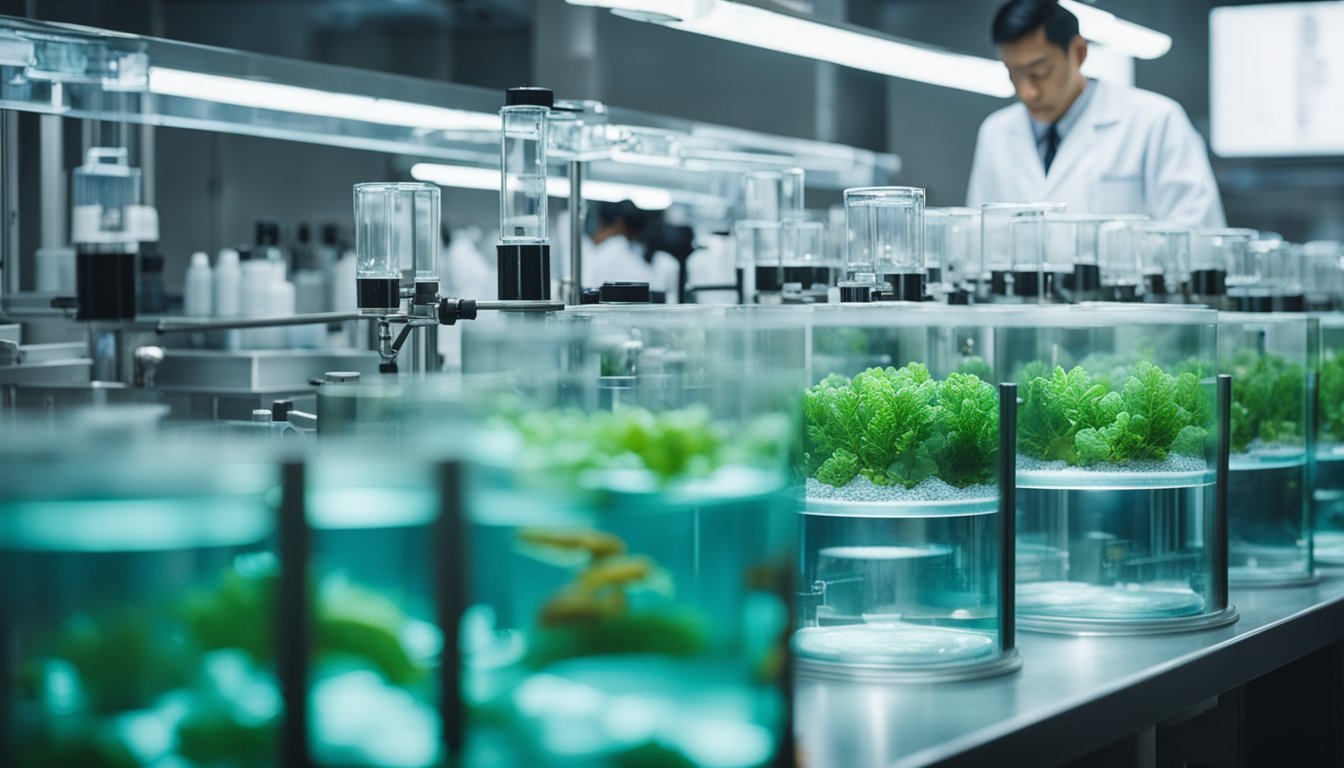
Singapore has taken the lead in promoting the development of lab-grown seafood, with companies such as Shiok Meats and Bluu Seafood pioneering the field. These companies use stem cells from fish to grow seafood in a lab setting, eliminating the need for traditional fishing practices. The result is a sustainable and healthy source of seafood that can help address food sustainability concerns.
Lab-grown seafood also offers several environmental and health benefits. By reducing the reliance on traditional fishing practices, it can help preserve marine ecosystems and reduce overfishing. It is also free from harmful chemicals and antibiotics that are often used in traditional fish farming practices. In addition, lab-grown seafood is a healthier alternative to traditional seafood, as it is low in mercury and other toxins that are often found in wild-caught fish.
Key Takeaways
- Lab-grown seafood in Singapore offers a sustainable and healthy alternative to traditional fishing practices.
- Technological advances in cultivated seafood are helping to meet the growing demand for seafood while preserving the environment.
- Lab-grown seafood offers several environmental and health benefits, making it a promising solution to food sustainability concerns.
The Rise of Lab-Grown Seafood in Singapore
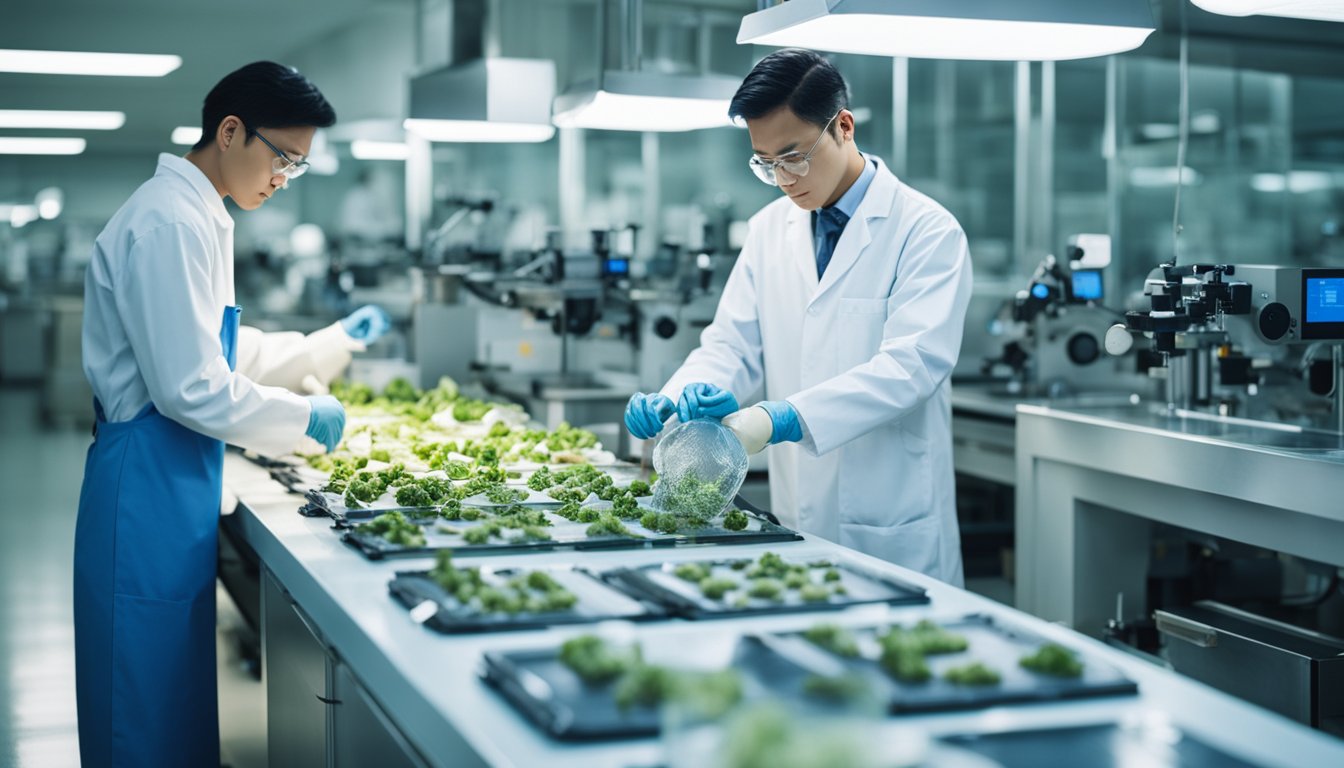
Lab-grown seafood is a rapidly emerging industry in Singapore and Southeast Asia. As the world's population continues to grow, traditional fishing methods are becoming unsustainable, and lab-grown seafood provides a sustainable and ethical alternative. In this section, we will explore the rise of lab-grown seafood in Singapore, its benefits, and the role of Shiok Meats in Singapore's lab-grown seafood industry.
Understanding Lab-Grown Seafood
Lab-grown seafood, also known as cultivated seafood, is produced by growing fish cells in a laboratory. The process involves taking a small sample of cells from a live fish and then growing them in a nutrient-rich solution. Over time, the cells multiply and form muscle tissue, which can then be harvested and processed into seafood products.
One of the main benefits of lab-grown seafood is that it is environmentally sustainable. Traditional fishing methods can damage marine ecosystems and lead to overfishing, which is a major threat to global food security. Lab-grown seafood eliminates the need for fishing and can help to reduce the impact of fishing on the environment.
Shiok Meats and Singapore's Role
Shiok Meats is a Singapore-based start-up that is at the forefront of the lab-grown seafood industry. The company was founded in 2018 by two stem-cell scientists, Sandhya Sriram and Ka Yi Ling, who saw an opportunity to develop lab-grown seafood in Singapore.
Singapore is well-positioned to become a hub for lab-grown seafood in Asia. The city-state has a strong research and development ecosystem, as well as a supportive regulatory environment. The Singapore government has also been supportive of the lab-grown meat industry, providing funding and other incentives to start-ups like Shiok Meats.
Shiok Meats has already made significant progress in developing lab-grown seafood products. The company has developed lab-grown shrimp and crab, and is now working on developing lab-grown lobster and other seafood products. Shiok Meats' products have received positive reviews and the company has attracted significant investment from investors in Singapore and around the world.
In conclusion, lab-grown seafood is an emerging industry that has the potential to revolutionize the global food system. Singapore, with its supportive regulatory environment and strong research and development ecosystem, is well-positioned to become a hub for lab-grown seafood in Asia. Shiok Meats, with its innovative products and technology, is at the forefront of this exciting industry.
Technological Advances in Cultivated Seafood
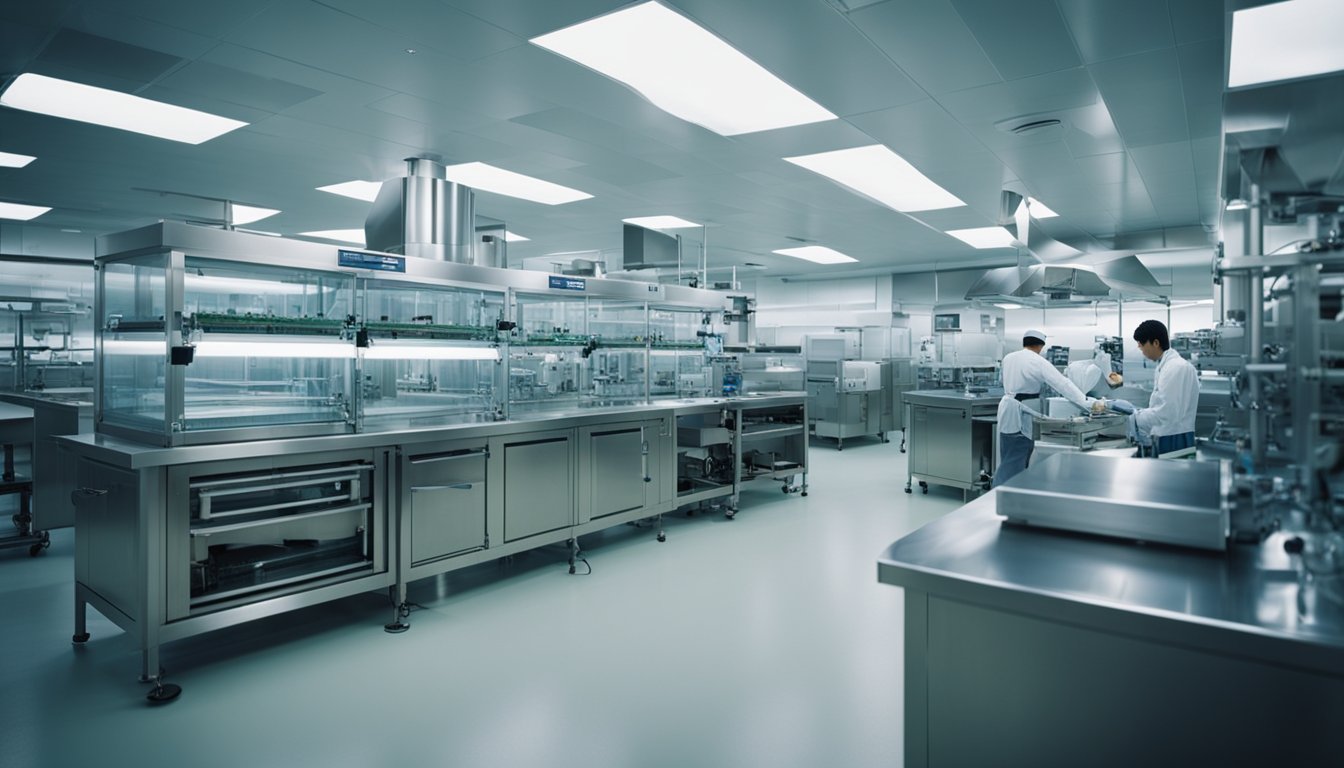
Cellular Agriculture Explained
Cellular agriculture is a process that involves growing animal cells in a laboratory to create food products such as meat, dairy, and seafood. This process is achieved through the use of stem cells, which are cells that can differentiate into various types of cells. In the case of cultivated seafood, stem cells are taken from fish and used to grow fish meat in a lab.
This process is much more sustainable than traditional fishing methods, as it eliminates the need for large scale fishing operations that can damage the environment. Additionally, it provides a way to meet the growing demand for seafood without depleting natural fish populations.
Bioreactors and Culture Media
The process of growing fish meat in a lab involves the use of bioreactors and culture media. Bioreactors are containers that are used to maintain a controlled environment for the cells to grow. These containers can be small or large, depending on the scale of the operation.
Culture media is a mixture of nutrients that are used to feed the cells and help them grow. This mixture can be adjusted to mimic the natural environment of the fish, ensuring that the meat produced is of high quality and has a similar taste and texture to traditional fish meat.
The use of bioreactors and culture media allows for the production of large quantities of fish meat in a small space, making it a more efficient and sustainable method of producing seafood.
Overall, the technological advances in cellular agriculture and the cultivation of fish cells in a lab have the potential to revolutionize the seafood industry. This process provides a more sustainable and ethical way of producing seafood, while also meeting the growing demand for this popular food. The use of biotech and laboratory techniques can help ensure that the seafood we consume is of high quality and free from harmful contaminants.
Environmental and Health Benefits
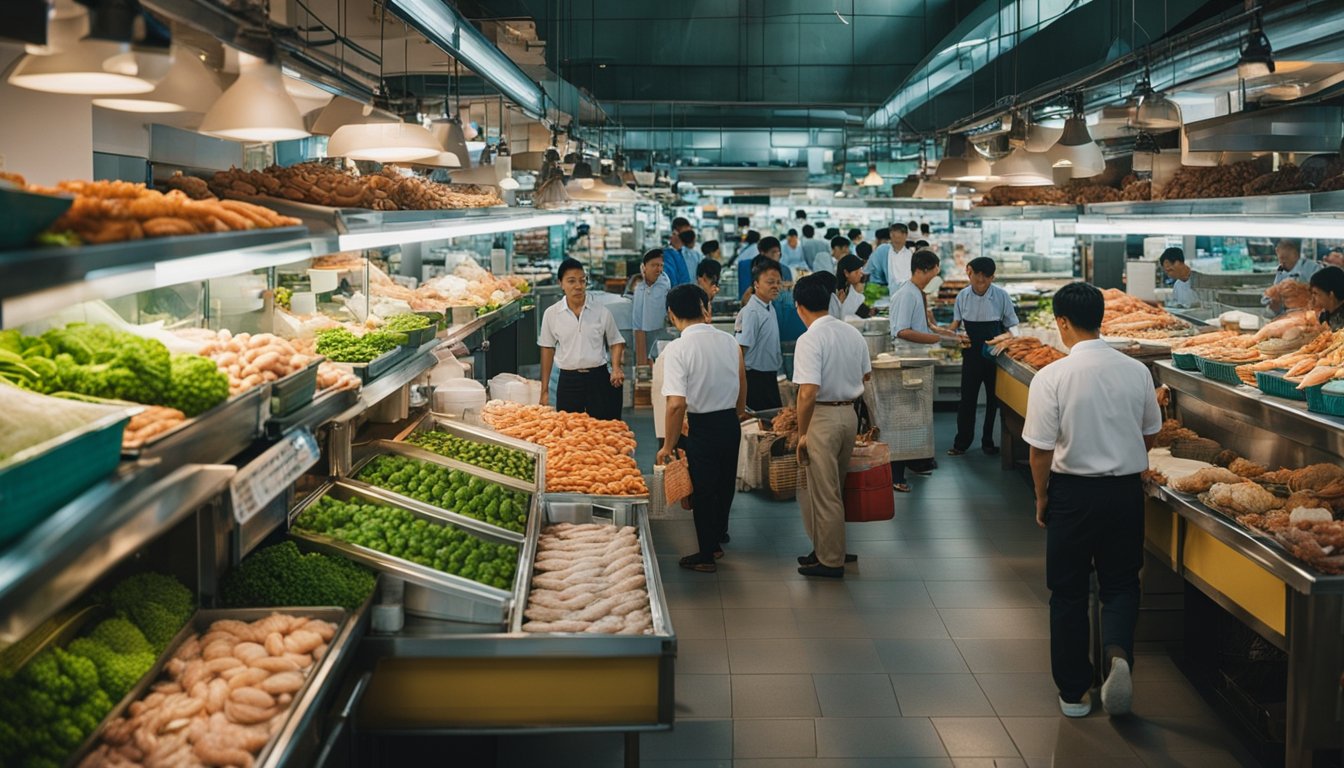
Impact on The Planet
Lab-grown seafood is a sustainable and eco-friendly alternative to traditional seafood. Unlike traditional seafood, lab-grown seafood does not contribute to overfishing, which is a major threat to marine life and the planet. According to TIME, lab-grown seafood is produced in a closed-loop system that uses significantly less water and land compared to traditional fishing methods. This means that lab-grown seafood has a much lower carbon footprint and is more environmentally friendly.
Advantages for Consumer Health
Lab-grown seafood is also a healthier alternative to traditional seafood. According to VegNews, lab-grown seafood is free from mercury, microplastics, and other contaminants that are commonly found in traditional seafood. This makes it a safer and healthier option for consumers.
In addition, lab-grown seafood is a good source of alternative proteins, which is important for food sustainability. According to Today Online, lab-grown seafood is produced using stem cells, which means that it can be produced in large quantities without the need for large amounts of feed and water. This makes lab-grown seafood a more sustainable and efficient way of producing protein.
Lab-grown seafood is also a great way to reduce the amount of microplastics in our oceans. Microplastics are tiny pieces of plastic that can be harmful to marine life and the environment. According to The Straits Times, lab-grown seafood is produced in a controlled environment that is free from pollutants, which means that it is free from microplastics. This makes it a safer and healthier option for consumers and helps to reduce the amount of microplastics in our oceans.
Overall, lab-grown seafood is a sustainable, healthy, and eco-friendly alternative to traditional seafood. It is produced in a closed-loop system that uses significantly less water and land, making it more environmentally friendly. It is also free from contaminants and microplastics, making it a safer and healthier option for consumers.
Challenges and Future Prospects
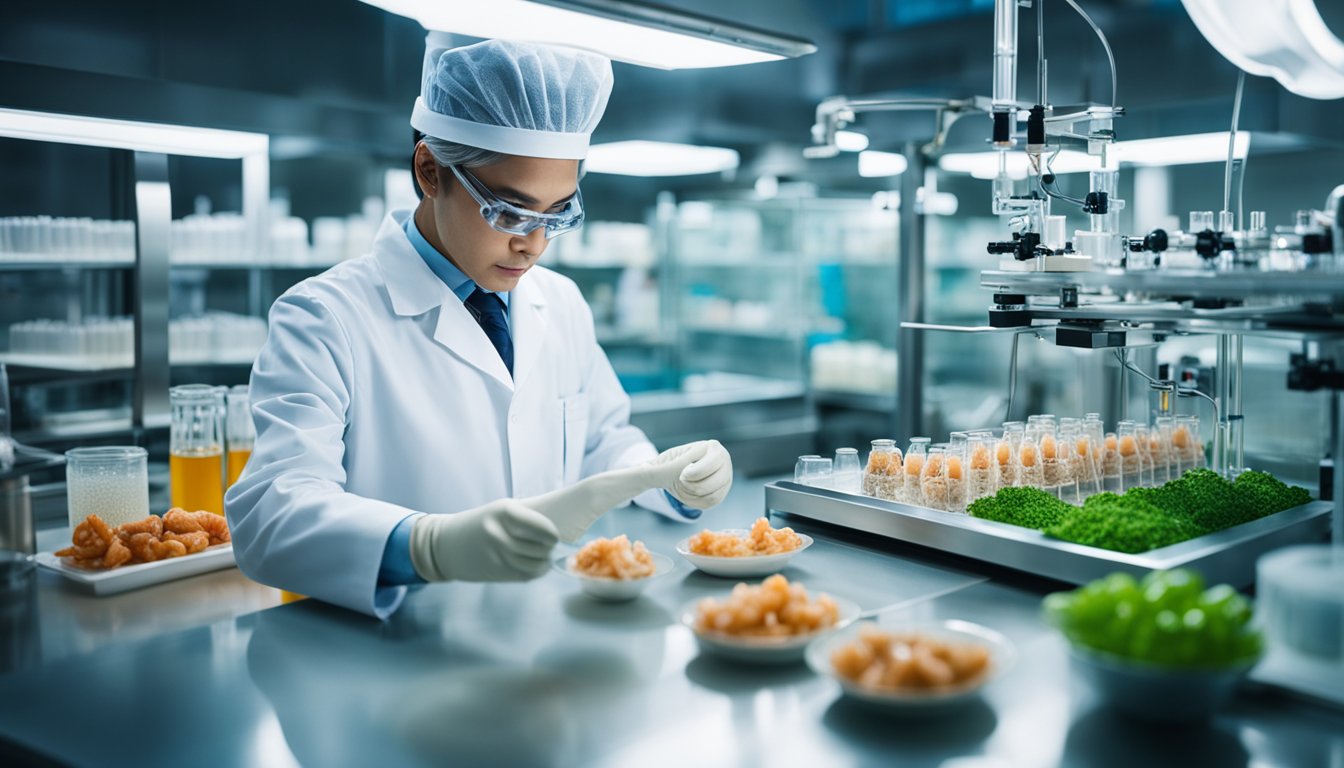
Regulatory and Market Hurdles
While Singapore is the only country in the world that permits the commercial sale of lab-grown meat and seafood, regulatory approval for the production and sale of cell-cultured seafood is still a challenge. The Singapore Food Agency (SFA) has set up a regulatory framework to ensure that cell-cultured seafood is safe for consumption and meets the same standards as conventionally farmed seafood. However, the regulatory process can be time-consuming and expensive for startups.
In addition to regulatory hurdles, the market for lab-grown seafood is still in its infancy. Many consumers are not yet familiar with the concept and may be hesitant to try it. Therefore, it is crucial for startups to educate consumers about the benefits of lab-grown seafood and its potential to address food security and sustainability challenges.
Investor and Partner Engagement
Investor and partner engagement is vital for the growth of the lab-grown seafood industry in Singapore. Startups need funding to scale up production and bring down costs to make the products more affordable for consumers. However, some investors may be hesitant to invest in a relatively new and untested industry.
Therefore, it is essential for startups to engage with investors and partners who share their vision and are committed to the long-term success of the industry. Partnerships with established food producers and distributors can also help startups to access existing supply chains and distribution networks, which can be challenging to build from scratch.
Lab-grown seafood has the potential to revolutionize the food production industry and address food security and sustainability challenges. However, regulatory and market hurdles, as well as investor and partner engagement, are significant challenges that startups in the industry must overcome to achieve success.
Frequently Asked Questions
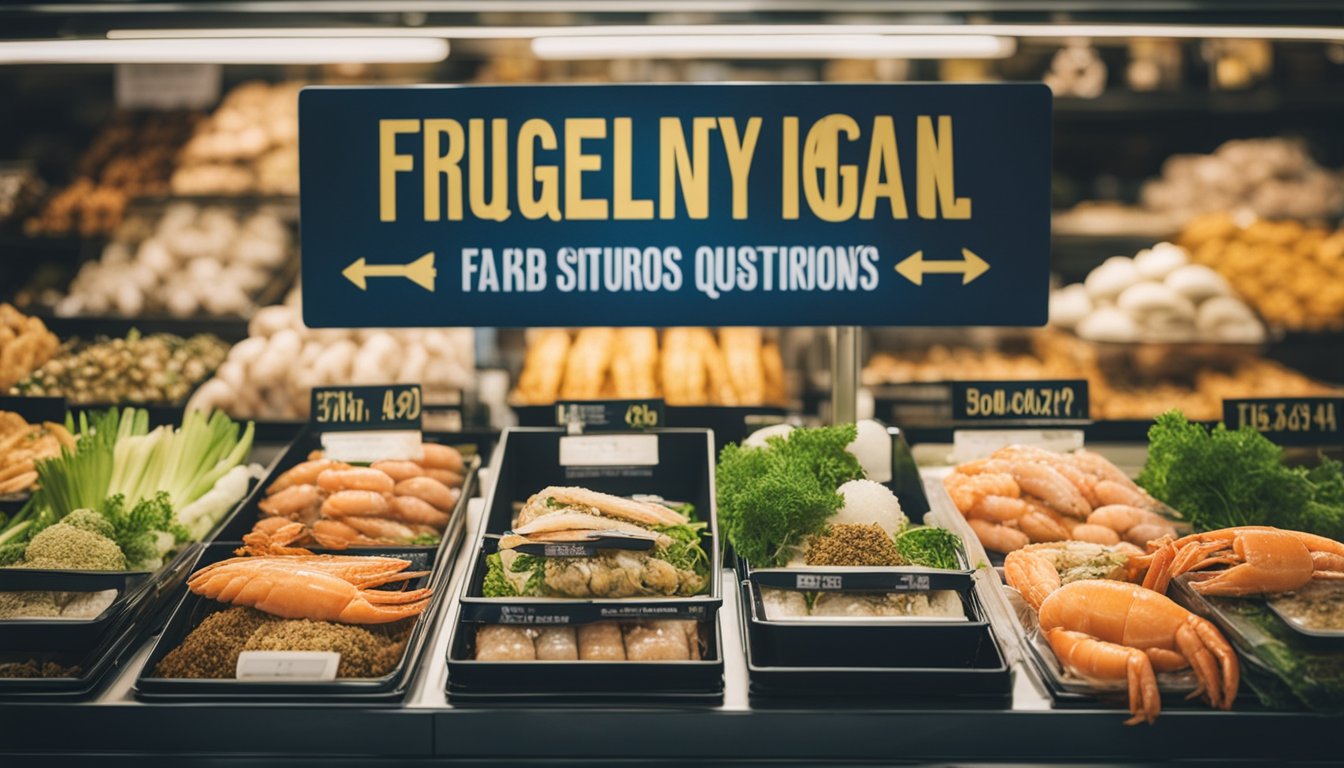
Where can one purchase lab-grown seafood in Singapore?
Lab-grown seafood is not yet widely available in Singapore, but there are a few companies that offer it. Shiok Meats is one of the leading companies in Singapore that produces lab-grown seafood. They offer their products to restaurants and other food establishments in Singapore.
What is the cost of lab-grown seafood in Singapore?
The cost of lab-grown seafood in Singapore is generally higher than that of traditional seafood. However, the cost varies depending on the type of seafood and the company producing it. For example, Shiok Meats' lab-grown shrimp is more expensive to produce than traditional shrimp, but the company is working to reduce the cost.
Which establishments offer the finest lab-grown seafood in Singapore?
Several restaurants and food establishments in Singapore offer lab-grown seafood. Some of the notable ones include Kebaya Dining Room, Grand Hyatt Singapore, and Parkroyal Collection Marina Bay. These establishments offer a variety of lab-grown seafood dishes that are both delicious and sustainable.
Can you recommend any restaurants that serve lab-grown meat in Singapore?
Yes, we can recommend a few restaurants that serve lab-grown meat in Singapore. Some of the notable ones include Kebaya Dining Room, Grand Hyatt Singapore, and Parkroyal Collection Marina Bay. These establishments offer a variety of lab-grown meat dishes that are both delicious and sustainable.
What are some of the leading cultured meat companies based in Singapore?
Singapore is home to several leading cultured meat companies, including Shiok Meats, which produces lab-grown seafood, and TurtleTree Labs, which produces lab-grown milk. These companies are at the forefront of the cultured meat industry and are working to create sustainable and ethical food products.
Is consuming lab-grown meat considered safe?
Yes, consuming lab-grown meat is considered safe. The technology used to produce lab-grown meat is highly regulated and follows strict safety guidelines. Additionally, lab-grown meat is produced in a sterile environment, which reduces the risk of contamination.


